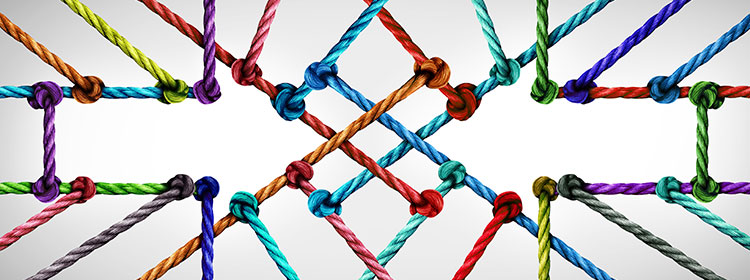Every day we encounter situations where we rely on our past to guide our future. When we start a new project or encounter a new struggle, either at work or home, we react based on our past experiences. Years and years of living life have educated us and planted information in our brains that we immediately access. “When I did this, this happened.” Our past experiences and the knowledge we’ve gathered over the years are some of our most valuable assets, and when we combine those together with other people whose experiences aren’t like our own, the possibilities are endless.
Diversity is a powerful word and concept today. Being able to sit in a room of people who are not like us, and drawing from the collected experiences of the larger group, allows us to see the world through a different lens. When we stand alongside others and their differences, we find ourselves stronger together than we would be alone.
Until we disagree. What happens when our diversity breeds conflict?
Any time you combine the insights and experiences of multiple people, you can count on the fact that each person’s collected life experiences have the potential to create opposition. We’re not all the same. This happens every day in our professional lives, in our teams, and how we lead. It also impacts how we interact with our spouses and significant others, how we parent, and our relationships with our children and friends.
It’s easy to put diversity on a pedestal until we have a disagreement. Then, when our opinions or experiences differ, it’s too easy to fall into thinking I’m right and you’re wrong. We’re blinded to the fact that our experiences may be limited or shaped by our individual personal perspectives. Based on the way we grew up, the home we grew up in, or where we went to school, our viewpoints may be vastly different. Layer onto that the experiences we’ve had professionally, from where we’ve worked to the kind of projects we’ve been exposed to and who we’ve worked with…
Our life experiences are not the same, and they have formed the way we think, live, and make our decisions.
Those experiences are not better, and they’re not worse. They’re just different. Rather than working so hard to be the one who is “right,” our goal should be to figure out what we can learn from one another. We all have blind spots and areas where we lack experience and knowledge. We also have individual strengths and weaknesses. Having people around us who can help fill our gaps provides us with a great advantage. When we can approach our teams with this in mind, we’re opening ourselves to a world of widened potential and improved results.
My two business partners at OrangeBall are a great example of this. They know my strengths and weaknesses as well as anyone, and they help fill my gaps. Between the three of us, and including our staff in this example, we each bring different perspectives to the table. We don’t always agree with one another 100%, but we see the strength in our differences, AND we trust one another. As a team, we know we are stronger together than alone.
My wife is another excellent example of this. Marriage is a space where our differences come out all the time. How do we parent our kids in a blended family? How do we manage our finances? What do you want to do for dinner? We may not always agree on the answers to questions like these, and although we both bring very diverse experiences to the table, I live every day confidently that my wife fills my gaps. Regardless of whether we’re always on the same page, we know that we trust one another and we’re committed to creating a strong marriage and family together.
The Takeaway
Conflict in these relationships, where diversity exists, is going to happen. It’s not a bad thing, and not something to run away from. If we can quit approaching conflict as a negative, and come at it knowing that our diversity is what makes us stronger, we can use our conflicts to move us closer to the best answers, better results, and one another.





